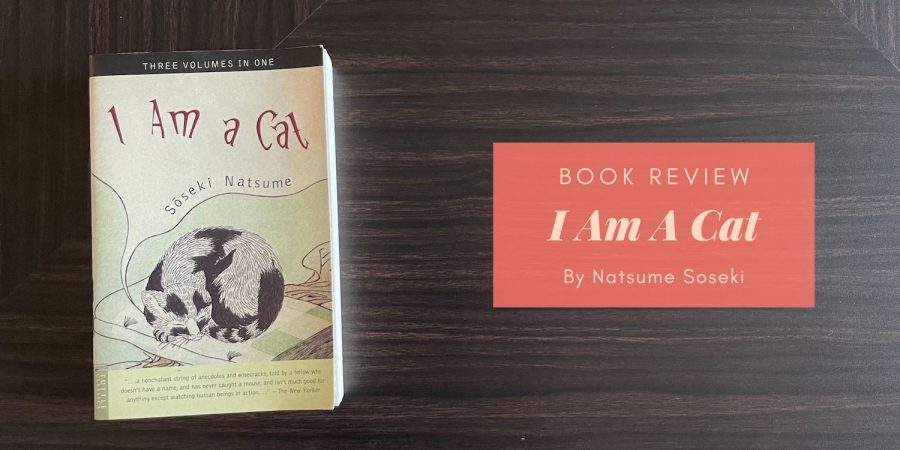Since I have been reading more Japanese literature (and since my memory of struggling through “人間失格/No Longer Human” in the original Japanese is fading), I decided to reread Natsume Soseki’s classic, “I Am a Cat”. I’ve read it years ago and my main takeaway back then was that the first chapter was lots of fun but then the book dragged.
Now, I have to say: the first chapter was lots of fun but then the book dragged… BUT also, I think it would be funny if I read it in Japanese (yes, opinion has changed! somewhat!).
As the title indicates, I Am A Cat is a novel told through the eyes of a nameless cat who lives in the house of a not particularly noteworthy English teacher. Originally a serialised story, each chapter is one more-or-less self-contained anecdote about observations of middle-class life in Meiji Japan.
Where the book shines is when Soseki focuses his attention on the differences between humans and cats, or when he is just observing how ridiculous some social niceties can be. I also enjoyed some of the cat’s airs, such as when he makes the following observation of his writing:
“The prose which I have written deserves a treatment no less punctiliously respectful. You should not disgrace yourself by reading it in some old dog-eared copy of a magazine filched or borrowed from a friend. Have at least the grace to buy a copy of the magazine with your own money.”
Soseki definitely doesn’t take himself seriously. There is even a reference to himself, as one of the characters says: “Only the other day some fellow with a name like Soseki published a short story entitled ‘A Single Night.’ But it’s so vague that no one could make head or tail of it.” Clearly, Soseki knew his works could be difficult and he embraced it with a sense of humour.
Where I grow bored, however, is when the cat’s owner, Mr Sneaze, and his friends start talking. I’m sure they are meant to be parodies, and I certainly appreciate the depth of Soseki’s knowledge (I completely missed how noteworthy it was to be so familiar with Japanese, Chinese, and Western literary culture – how many of us now can say we are so familiar with all the works mentioned?) but honestly, the conversations were too long. And a lot of it flew over my head because, as mentioned, I am not that familiar with all the works mentioned. I’ve also got a sneaking suspicion that a lot of the humour would be more obvious or stronger in the original language; this is no criticism of the translators because I can see that the book is tough to translate.
All that said, knowing and being able to appreciate just how complex and ambitious this work doesn’t actually increase the enjoyment of reading it. During the very long conversations, I found myself starting to skim the work and it required effort to properly read the whole thing. This is a work of classic literature, but I also think that it’s a daunting work for those who aren’t prepared for it – honestly, I’d just recommend the first chapter, which stands alone quite nicely as Soseki didn’t intend to write a whole novel at first, if you want to get a taste for this classic work.

I’m so glad that I read this one but I totally agree that it’s not an easy read (in English at least), I really appreciate it but I don’t think I’ll be rereading it any time soon haha
Hahaha same! I get why it’s important and all that, but it’s not the thing I’d be rereading for fun. I do want to try it in Japanese some day, but maybe just the first few chapters (if they sell it in volumes)